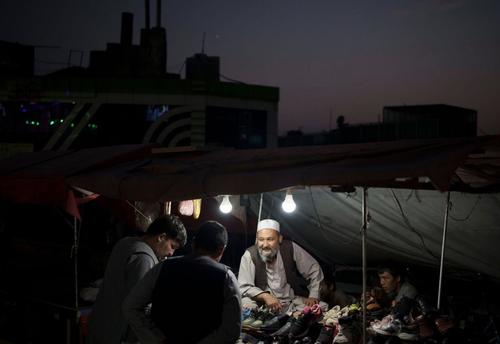“It’s A Really Dangerous Situation” – Afghanistan Faces Imminent Blackouts As Power Bills Skyrocket
While the Taliban are clearly preoccupied with the security situation inside the Islamic Emirate of Afghanistan, as emphasized by Sunday’s bombing at a major mosque in Kabul (ironically, the former insurgents are facing an insurgency of their own led by ISIS-Khorasan, the Islamic State’s Central Asian faction), there’s an even more pressing issue currently confronting Afghanistan’s new leadership.
It’s looking increasingly likely that the Central Asian suppliers who contribute roughly half of the country’s electricity are getting ready to pull the plug, according to the guy who used to run Afghanistan’s state power authority, Da Afghanistan Breshna Sherkat, which he quit roughly two weeks after the Taliban takeover and likely fled. He at least felt safe enough to tell WSJ that the consequences of the Taliban not making good with Afghanistan’s Central Asian power suppliers could be “really dangerous.”
“The consequences would be countrywide, but especially in Kabul. There will be blackout and it would bring Afghanistan back to the Dark Ages when it comes to power and to telecommunications,” said Mr. Noorzai, who remains in close contact with DABS’s remaining management. “This would be a really dangerous situation.”
Afghanistan lacks a national power grid, and is thus dependent on a network of suppliers in Turkmenistan, Tajikistan and Uzbekistan to supply roughly half the country’s power, while Iran supplies some in the western part of the country. Domestic production inside Afghanistan mostly relies on hydroelectric power grids, which haven’t been functioning at anywhere near full capacity due to a drought.
Right now, Kabul is enjoying a “power honeymoon” of abundant electricity suppliers. But as the Taliban’s relationship with Tajikistan, which has given shelter to leaders of the anti-Taliban resistance, such as former VP Amrullah Saleh. Tajikistan recently deployed additional troops to its border with Afghanistan, prompting Russia to call on both countries to de-escalate.
The bigger problem, at the moment, is that many of Kabul’s residential customers don’t have the money to pay their bills since food prices surged in the wake of the Taliban takeover.
“Our problems are growing every day,” said one Kabul resident who spoke with WSJ, and requested that only his first name be used.
Another salesman in Kabul painted an even more vivid picture.
Farooq Faqiri, a 32-year-old market-stall holder who sells plastic jewelry, said that his family of seven used to be able to eat meat every day, but now they live on potatoes. Buyers have plunged amid Kabul’s economic crisis. For him to pay his electricity bill, his family would have to start skipping the meager meals they currently have.
He said that they would have to skip even some of those meager meals to save enough to pay the electricity bill, which is a month in arrears. “The electricity comes from a corporation so they will not let us off the bill,” said Mr. Faqiri. “If they cut us off, we will have to go back in time and use oil for light and heat in our rooms.”
At DABS, the state power company, the situation is also pretty dire. The leadership has been replaced by clerics, with the old managers now serving as deputies. But pretty much everybody with any usable knowledge is trying to get out any way they can.
Too bad the mullahs won’t be able to turn to its new allies in Beijing…they’re somewhat preoccupied with a power crisis of their own right now.
Tyler Durden
Sun, 10/03/2021 – 12:40
via ZeroHedge News https://ift.tt/3A5Xuxj Tyler Durden
